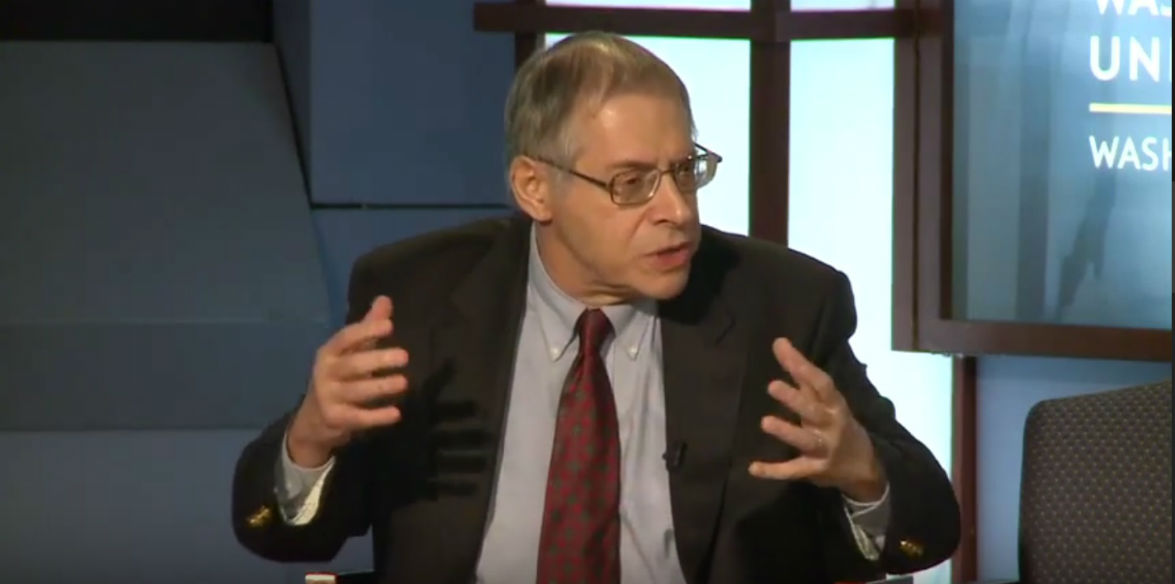Seeking “some education” Jared Bernstein recently asked some questions about MMT (Modern Money Theory).This series is my effort at some answers. Part I is about deficit spending. Part II covers inflation. Part III explains the view of the place of the Fed in the MMT framework according to this writer. Part IV critiques Jared’s views on Paul Krugman’s “finance-ability” notion. And Part V covers “timing issues.”
On Coming in Peace
And Jared’s last statement:
Such queries seem often to get under the skin of the MMT crowd. But I come in peace and stress our shared recognition of the horrors of budget austerity. I ask these questions in the spirit of better understanding your arguments.
I come in peace too. And so, I’d like to explain why queries of the sort you just addressed to MMTers might seem to get under our skins. It is about the history of MMT and the efforts of MMT writers to present their work and findings to mainstream economists and the mainstream press.
It is now 24 years since the first MMT synthesis by Warren Mosler began to circulate. For much of the first 10 years MMT views were simply ignored by the mainstream. Then in the second decade MMT began to be mentioned in mainstream publications. The coverage, often in columns written by mainstream economists, was not friendly.
It was often characterized by crude attempts at marginalization of a different approach to economics. Columns critical of MMT were written with virtually no examination of the MMT literature, and were clearly based on hearsay or sheer invention.
MMT writings were excluded from major economic journals. MMT scholars coming out of schools found it difficult to get good jobs in economic departments. In particular, one of the most public of economists, Paul Krugman, for example, made repeated attacks on MMT economics in the New York Times without citing MMT economists in his columns.
The closest he came to showing that he’d read any of the work of MMT writers was in a citation to a blog written by Cullen Roche, a writer marginally attached to the MMT approach, who was not even supportive of one of the main MMT-based policies; the Job Guarantee for reaching full employment with price stability. Roche later broke with MMT entirely advocating for another approach called Monetary Realism, espousing different economic goals than MMT.
Krugman’s work on MMT was critiqued in many blog posts (here, here, here, here, here, here, and here for example) and also in a flood of commentary on his own blog. In the process of this interaction he refused, after being corrected multiple times in comments using links to publications to change mis-statements of fact about what MMT writers had said, motivating this post of mine as well as numerous other corrections until he stopped his attacks on MMT.
Even today, mention of MMT in policy discussions at meetings in Washington is in bad odor. MMTers are now invited to such meetings, since Stephanie Kelton’s appointment as Chief Economist of the Senate Budget Committee, and her successful service in Washington, accompanied by gentle and friendly advocacy of ending fealty to austerity budgeting, and institutions such as the CBO and the Peter G. Peterson Foundation and its network of austerity satellites. But, they still must mind their Ps and Qs, and refrain from directly challenging the central precepts of neoliberal monetary and fiscal policy.
So, MMT writers have faced more than 20 years of first exclusion, marginalization, and now, perhaps, relegation to the margins of mainstream debate. Meanwhile many hundreds of thousands, perhaps millions of Americans have died due to austerity budgeting and its effects. And, around the world the effects of the so-called Washington Consensus certainly include the death of many millions due to neoliberal policies emphasizing market fundamentalism and austerity budgeting, forced on developing nations as a condition of receiving aid from International Institutions such as the IMF and the World Bank.
The Krugman example of the kinds of slings and arrows directed at MMT writers and the insincerity and seeming lack of integrity accompanying such attacks, explain why queries such as Jared’s can get under our skins. We love queries from people who are trying to learn MMTs and need some explanations about what they don’t fully understand. But when queries come from economists or policy wonks citing points of criticism that were de-bunked by MMT writers years ago . . . well, yes, that can sometimes get under our skins.
So, I conclude that if Jared really comes in peace, then he can begin by reading and acknowledging some basic MMT literature. Works by Warren Mosler, Randy Wray, Bill Mitchell, Stephanie Kelton, Pavlina Tcherneva, Scott Fullwiler, Mat Forstater, and Eric Tymoigne, are good places to start. And then if he has criticisms of their MMT-based views, let him lay them out carefully with quotations from the sources, absent labeling without argument, name-calling and ad hominem, and then have some friendly and civil exchanges about the policy implications of MMT. This MMT writer would welcome such an approach from a mainstream economist and believes that a respectful exchange along these lines would go a long way to creating the peace Jared seeks.
End of Part VI and the series
